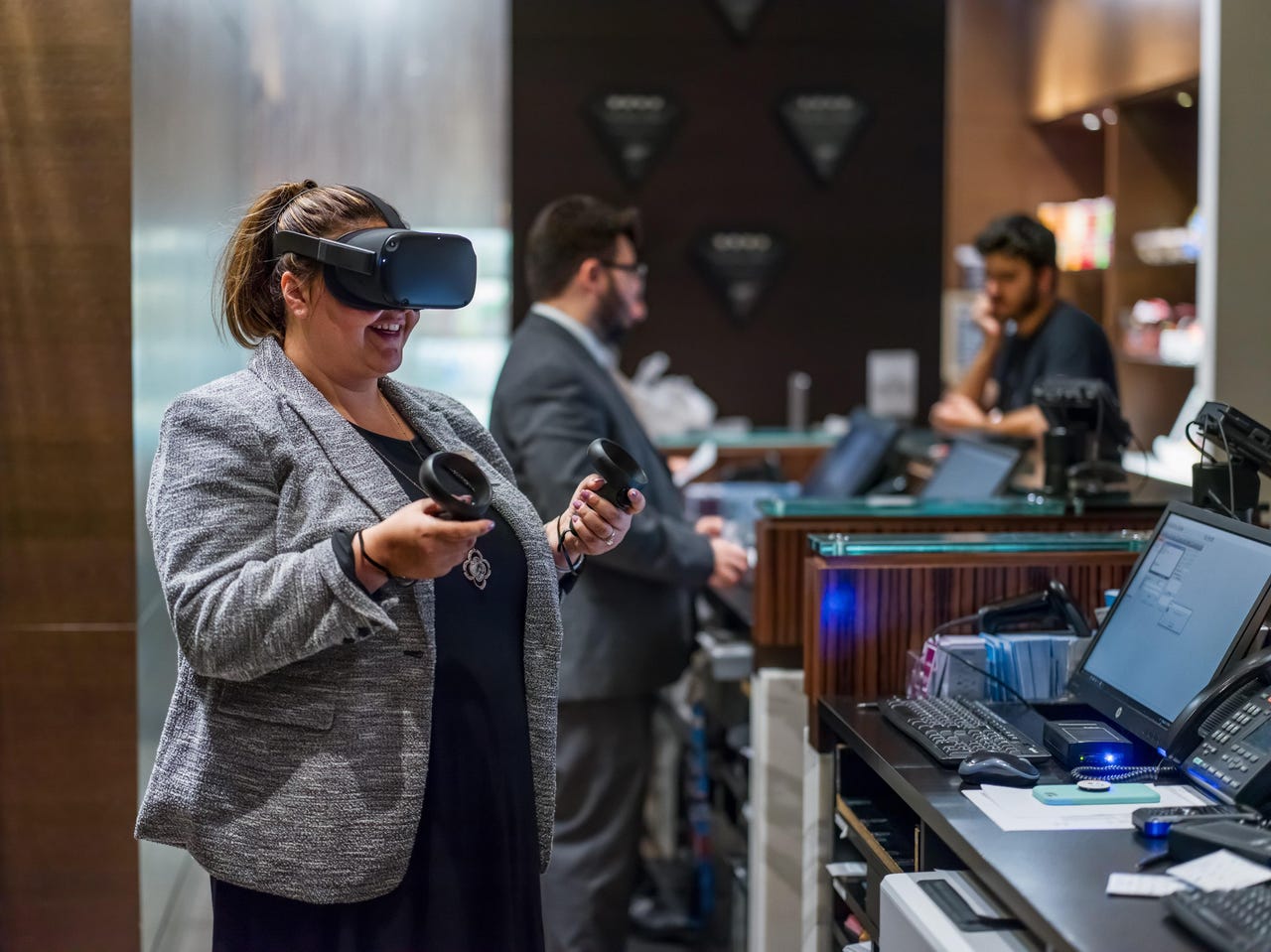Hilton uses VR to boost corporate employees' empathy for housekeeping staff


Virtual reality is gaining ground in the workplace as a training tool to equip employees with a range of skills, often for highly-technical or risky jobs. Hilton, the 100 year-old hospitality company, is using VR to provide corporate employees with a very different kind of skill: empathy.
Oculus, the Facebook-owned VR headset maker, shared on Tuesday how thousands of its corporate employees over the past 18 months have used VR to learn what it's like to work as a room service, housekeeping or front desk employee.
"We want them to understand the physicality and complexity of hotel operations so they can better feel what it's like to be in the shoes of a room service attendant," Blaire Bhojwani, Hilton's senior director of learning innovation, said about one of the room service simulations.
The Hotel Immersion simulations were designed in collaboration with SweetRush, a firm that helps corporate clients improve the performance of employees. They use 3D computer graphics and 360-degree video to simulate tasks like cleaning rooms or setting up room service trays.
Hilton's senior leaders can visit and immerse themselves in all of the hospitality chain's departments -- including laundry, food and beverage and sales -- but scaling up that kind of experience across corporate teams was impractical.
Meanwhile, once corporate employees understand how hard those jobs can be -- especially given the sheer number of rooms cleaned and the number of guests attended to each day -- they can be more mindful of how their decisions impact service teams. A task that adds five minutes to cleaning a single room will add up to significantly more work for a housekeeper by the end of the day.
Hilton is also deploying VR simulations that show hotel team members what it's like to be a guest experiencing a problem, like a drawn-out checkout process.
VR is still largely seen as a gaming platform, but according to IDC, commercial use cases will account for nearly half of all AR/VR spending in 2020. Training use cases are expected to lead commercial deployments this year, with enterprises spending $2.6 billion.